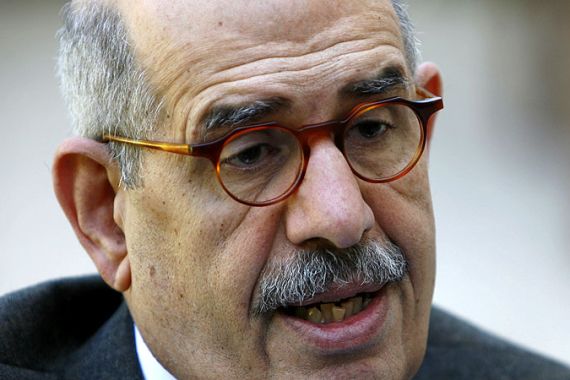Crisis talks urged in Egypt amid more unrest
The opposition calls for a broad national dialogue with Egypt’s government as violence continues in Cairo.

Two more protesters have been killed after they were hit with birdshot during clashes with police near Cairo’s Tahrir Square.
A security official, speaking on condition of anonymity because he was not authorised to talk to the press, confirmed the deaths on Wednesday.
Violence has spiraled after first erupting in Cairo on eve of last Friday’s second anniversary of the uprising that toppled authoritarian president Hosni Mubarak.
It since spread around the country, with the worst violence in the Suez Canal city of Port Said, which has virtually declared itself in revolt against President Mohamed Morsi’s government.
In response, Morsi declared a 30-day state of emergency and night curfew in Port Said and two other Canal cities, Suez and Ismailiyah, and their surrounding provinces.
But every night since it went into effect, tens of thousands of residents in the cities have defied the curfew with nighttime rallies and marches, chanting against Morsi and the Musllim Brotherhood, which forms the backbone of his rule.
Officials in the presidency and the Brotherhood have blamed the opposition for instigating the violence, accusing them of trying to bring down Morsi, Egypt’s first freely elected president.
Late on Tuesday, Morsi authorised governors of the three provinces to either cancel or limit curfew hours in an attempt to assuage public anger.
Suez Governor Gen. Samer Aglan said that he will ease up the curfew while deploying more troops to the streets after midnight, and in Ismailiyah, Governor Gamal Imbaby has cut the curfew to three hours from the nine hours originally imposed.
Opposition calls for dialogue
Egypt’s liberal opposition leader has called for a broad national dialogue with the government, all political factions and the powerful military, aimed at stopping the country’s eruption of political violence that has left more than 60 dead in the past week.
Mohamed ElBaradei’s appeal on Wednesday appeared to be aimed at responding to a sharp warning by the head of the armed forces a day earlier that Egypt could collapse unless the country’s feuding political factions reconcile.
So far the opposition National Salvation Front headed by ElBaradei and the government of President Mohamed Morsi have been at loggerheads, with the front demanding Morsi make major concessions as a condition for any dialogue.
In a Tweet, ElBaradei called for an immediate meeting between Morsi, the defence and interior ministers, the Brotherhood’s political party, the National Salvation Front and parties of the ultraconservative Salafi movement “to take urgent steps to stop the violence and start a serious dialogue”.
He stuck by the Front’s previous conditions for holding a dialogue – that Morsi form a national unity government and form a commission to amend contentious articles of the government-backed constitution.
Morsi has ignored their demands, holding his own “national dialogue” programme, mainly with his own allies.
The Front has depicted the unrest as a backlash against Muslim Brotherhood’s insistence on monopolising power and as evidence that the group and its allies are unable to manage the country on their own.